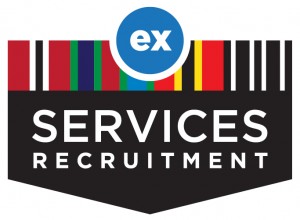How Important is Reliability in a Job?
This week's blog was discovered on LinkedIn published by Patti Peeples (PhD, RPh), a topic that plays a huge role here at Superior Personnel.
I personally believe that in many cases, reliability comes BEFORE so many other professional success characteristics, such as quality, innovation, or speed. Notice I didn't say reliability is more important than all of those other characteristics...just that it has to come before. You have to deliver the basics well, before you can deliver the flash.
I remember my first mentor said to me, when I was working in clinical pharmacy services in a hospital in the mid-80s, around the time that pharmacists were moving out from behind the dispensing counter and next to the patient bedside: "Patti, there's no demand for clinical pharmacy advice if our Pharmacy can't get the right drug to the right patient at the right time! Let's get the basics done, reliably and accurately, then build from there." Admittedly, I thought he was a little "staid", but a few years under my belt in the workplace taught me that he was right. The lesson was: Walk before you run.
Reliability - to clients, to fellow workmates, to professional colleagues, to stakeholder community - is a central defining characteristic of my work ethic and my company mission. And it's a central defining characteristic in my hiring process.
As a CEO of a small company, we run with a small team (n=6), depending heavily upon each other. If one of us falters, for whatever reason, it affects everyone because we are all carrying a big load. Or should I say more accurately, that each of carries a big portion of the total load.
A 3-legged stool depends entirely on 1 of the 3 legs; a 10-legged stool can survive on the other 9 if a leg falters. So, reliability in a small team is particularly paramount.
With any team, it is not possible nor is it realistic to expect that everyone operates at 100% commitment and capacity, 100% of the time. I do not expect this of others, and I don't expect it of myself. That's why I've spent a good deal of time ensuring that my team is cross-trained. That is, each of us can function as another leg of that metaphorical stool mentioned above, in a pinch. It helps us operate efficiently when someone is out, and it helps promote a sense of total teamwork, knowing someone can and will always have your back - if needed.
And, I'm very honored to say that my team excels in reliability. There are countless examples where they have circled the wagons, made things work despite great odds, lent a helping hand to a fellow co-worker to make sure a project got finished, problem-solved when it wasn't their problem, and more.
Somehow, I managed to hire people who were reliable, dependable, consistent, trustworthy, cooperative, and dedicated. And somehow, they keep showing up, giving it their all, and making our total company so much bigger than the sum of our parts.
Looking at that list above that represent synonyms for the word "reliability" -dependable, consistent, trustworthy, steadfast - I guess they explain why "reliability" is so important to me. It means that when we start on a project or make a commitment to a client, we all know - without any wiggle room - that our team is going to pull together to make it happen.
Sometimes, when we deal with others, it doesn't go as planned. I've had two situations lately (and hence the catalyst for this blog post) where I received last minute messages from a vendor or a colleague saying something isn't done, or that a deliverable can't be met. It is evident that they could have let me know this a few days prior...but hoped they'd pull a rabbit out of a hat at the last minute, then couldn't. That's just lame. And unprofessional. And it creates chaos down the line



